Advertisement
Restaurants and shops were burnt during the riots photo: REUTERS[/caption]
French President Emmanuel Macron will lead an urgent security meeting on Sunday, following a day of riots by hundreds of anti-government protesters in Paris.
A government spokesperson said a state of emergency could be imposed to tackle the unrest. Protests over fuel tax have grown into general anger at higher living costs. While some demonstrators have remained peaceful, others clashed violently with police and scaled the Arc de Triomphe. More than 100 people were injured, including 23 members of the security forces, on Saturday. Police say more than 400 people were arrested. Mr Macron returned from the G20 summit in Argentina on Sunday morning and went straight to the Arc de Triomphe to assess the damage.
[caption id="" align="alignnone" width="720"]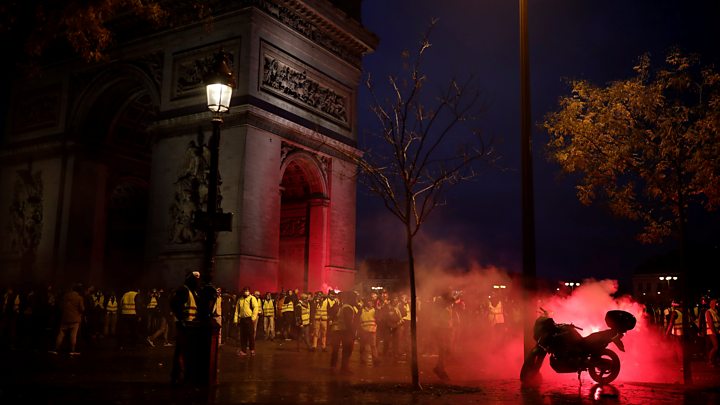 Tear gas filled the streets around the Arc de Triomphe[/caption]
Tear gas filled the streets around the Arc de Triomphe[/caption]
 Tear gas filled the streets around the Arc de Triomphe[/caption]
Tear gas filled the streets around the Arc de Triomphe[/caption]
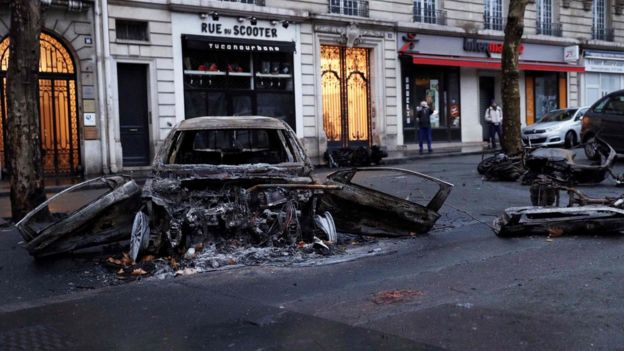 AFP / GETTY IMAGES[/caption]
AFP / GETTY IMAGES[/caption]Who are the protesters?
The protesters are known as the “gilets jaunes” (yellow vests), because they have taken to the streets wearing the high-visibility clothing that is required to be carried in every vehicle by French law. Their core complaint is a hike in petrol taxes. President Macron says his motivation for the increase is environmental, but protesters call him out of touch – particularly with non-city dwellers who rely on their cars.
[caption id="" align="alignnone" width="720"]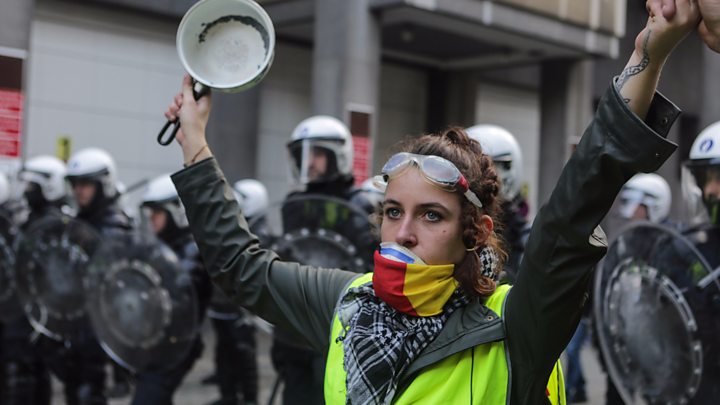 France fuel protests: Who are the people in the yellow vests?[/caption]
France fuel protests: Who are the people in the yellow vests?[/caption]
 France fuel protests: Who are the people in the yellow vests?[/caption]
France fuel protests: Who are the people in the yellow vests?[/caption]
What happened on Saturday?
The “yellow vest” protesters rallied for a third weekend on Saturday, with Paris again the focus. On the Champs-Elysées, police fired tear gas, stun grenades and water cannon, while masked protesters hurled projectiles and set buildings on fire.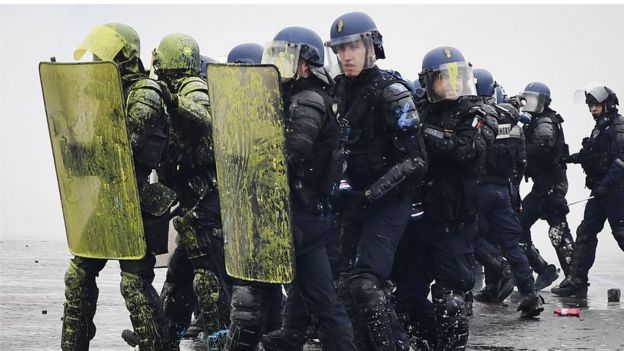 Riot police were splattered with yellow paint photo: AFP / GETTY IMAGES[/caption]
Riot police were splattered with yellow paint photo: AFP / GETTY IMAGES[/caption]What has President Macron said?
On Saturday, Mr Macron said the protests “had absolutely nothing to do with a peaceful demonstration of a legitimate unhappiness or discontent.” He said those responsible did not want change, but instead intended to “wreak chaos”.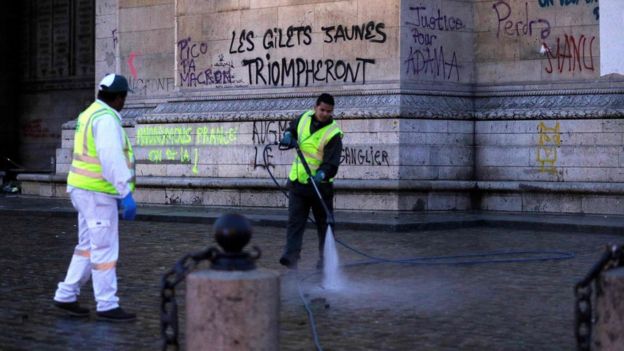 The clean-up is under way. The graffiti here says: “The yellow vests will triumph” photo: GETTY IMAGES / AFP[/caption]
The clean-up is under way. The graffiti here says: “The yellow vests will triumph” photo: GETTY IMAGES / AFP[/caption]

